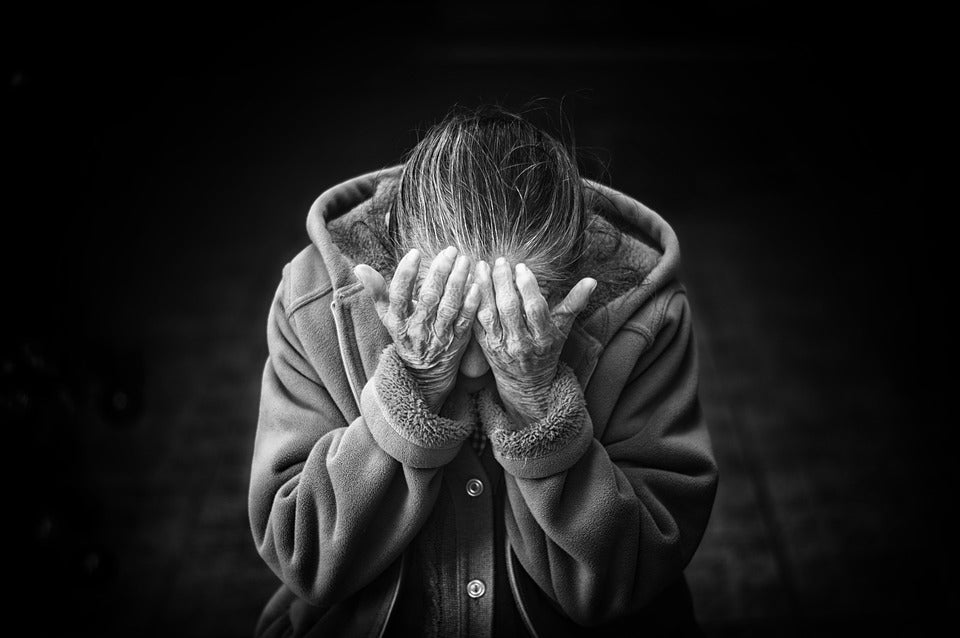After a year of waiting, I FINALLY got to go to the cinema to watch Avengers: Endgame last weekend.
Boy, was it worth it!
Some heart-breaking moments, some huge laugh-out-loud scenes, some spine-tingling thrills, and a whole lot of comic book goodness.
But you know what really struck me the hardest: the grief.
As (I really hope) you know, half of the world’s population was evaporated by “The Snap” at the end of Avengers: Infinity War. Half the world’s population—brothers, sisters, parents, children, friends, loved ones.
Grief is the #1 emotion at the beginning of Endgame. Grief over lost family and friends.
Each of the characters in the movie had lost someone. (Don’t worry, no spoilers!) And each of them dealt with grief in their own way. Some “imploded”, internalizing their grief and carrying it in silence. Others lashed out or found targets upon whom to unleash their anger and sorrow. Still others tried to channel it into something productive, something to help others.
Every reaction felt genuine. Everyone bore that burden of grief, the pain of loss, but their way of coping with it was so different that together they portrayed a fascinating picture of how we, as humans, process grief.
In Steel and Valor (The Silent Champions #3), the main character, Captain Aravon, deals with some serious losses of his own. He is very much the “implosive” personality type, the one who internalizes his anguish and emotions and tries to deal with them inside his heart and head.
Perhaps that was why the grieving scenes in Avengers: Endgame stuck out so much. I was thinking about grief, walking myself through the character’s process of coming to terms with those losses, and it was fascinating to see other perspectives on how people cope with it.
That, of course, led me to doing a bit of research into grief and the grieving process, all so I could better write my Captain Aravon character. And as I was reading up on grief, I found that there are a lot of different types.
Or, more accurately, we grieve over a number of different losses.
First and foremost, of course, is the loss of a loved one. When someone we love dies, that leaves a hole in our hearts and lives. It fills us with sorrow at their absence, at the life that could have been but now never will be.
But a big one that most of us never think about is a loss of identity. Divorce (losing the identity of “husband/wife”), being fired (losing the identity of “employee”), and having your children leave home (losing the identity of “parent”) are all losses of identity that can bring on that sort of grief.
As someone who is watching their teenaged children get jobs, start their own lives, and move out of my house, that’s one I’m very familiar with.
Loss of safety is another huge one. Our massive car accident in 2009 still has my wife feeling nervous when we drive on the highway, or when we have to hit the brakes for a sudden stop. She lost that feeling of safety in the car, and even 10 years later, it’s still a loss that she’s coping with.
Eviction, housing instability, emotional abuse, sexual abuse, trauma from violence, and romantic infidelity can all shake our feelings of safety and security, causing that feeling of loss that may never fully go away unless we process it.
For people with degenerative health illnesses, sudden disabilities, declining health, or serious financial setbacks, loss of autonomy is another one. Sometimes from one day to the next, you lose the feelings of control and independence you once had, and you feel the ability to manage your life slipping from your grasp.
One example that springs to mind is Terry Pratchett. One of the greatest fantasy writers of all time, yet his mind was being slowly eroded by Alzheimer’s. I can only imagine the horror he felt, the pain of knowing that one of the most important things in his life—his creativity and imagination—was being destroyed by an inexorable illness.
A very disorientating type of loss is the loss of dreams or expectations. The actor who fails in Hollywood and has to head home to work a “normal” job. The student who realizes they’re not suited for that career they’d believed their first choice. The athlete who suffers a career-ending injury. People who have always wanted children, yet who struggle with infertility. People horrified at watching their country go to hell in a handbasket because the wrong people took control (sound familiar?).
All of these losses can trigger the same feelings of grief as the loss of a loved one, and they should be treated similarly. Understanding that these are very real, very emotional losses can help you put life into perspective, and set you on the path through the mourning process.
Only by going through will you be able to come out the other side. Perhaps not happier for the loss you’ve sustained, but with a deeper knowledge of yourself and the reasons behind your actions and feelings.

